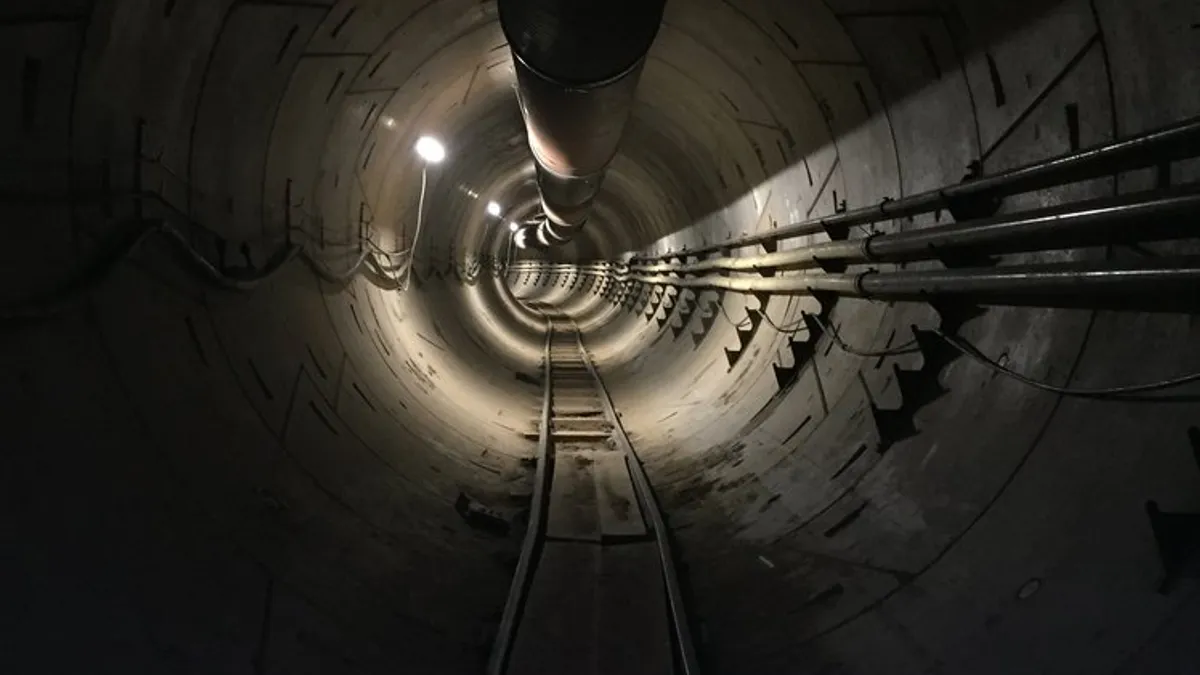Dive Brief:
- Lawsuits filed by Los Angeles activists have threatened to sideline a test tunnel planned by Elon Musk's The Boring Company to be the first step toward a hyper-fast transportation system under the city, according to the Los Angeles Times.
- The Brentwood Residents Coalition and the Sunset Coalition are suing Los Angeles, claiming that the tunnel is really part of a planned transit system and should therefore the city should not have granted it exemption from standard environmental reviews. The big worry for the residents behind the legal challenge is that tunneling in seismic-prone areas will damage their homes. The city council's public works committee proposed the exemption last month, but the full city council still must vote on the issue.
- Despite pushback from the local community, it looks like Musk's system won't see legal action from the Metropolitan Transportation Authority. Metro officials said they have met with individuals from The Boring Co. and that the two will work together to prevent conflicts between the loop and the Metro's planned subway through the same area.
Dive Insight:
Usually, major projects in California are subject to California Environmental Quality Act (CEQA) regulations. However, because of its size and location, The Boring Co.'s proposed 2.7-mile Los Angeles tunnel falls within an exemption category, which could let the company off the hook for test purposes.
Meanwhile, Musk's firm is nearing completion on a tunnel under the Los Angeles suburb of Hawthorne, California, near his SpaceX headquarters, another one of the Tesla founder's business enterprises. Videos and pictures of the project were recently made public, with Musk noting that, "pending final regulatory approvals," the company will start giving free rides to the public in a few months.
The system Musk envisions would see pods carrying vehicles, pedestrians and bicyclists on "skate" platforms traveling at speeds of up to 130 mph.
Such a system is what many onlookers are expecting The Boring Co. to propose for a $1 billion to $3 billion express transit system between downtown Chicago and the area's O'Hare International Airport. The company is one of two finalists selected to bid on the project, which is targeting a maximum commute of 20 minutes. The system can be underground or above ground as long as it meets the timing requirements and is reasonably priced.












